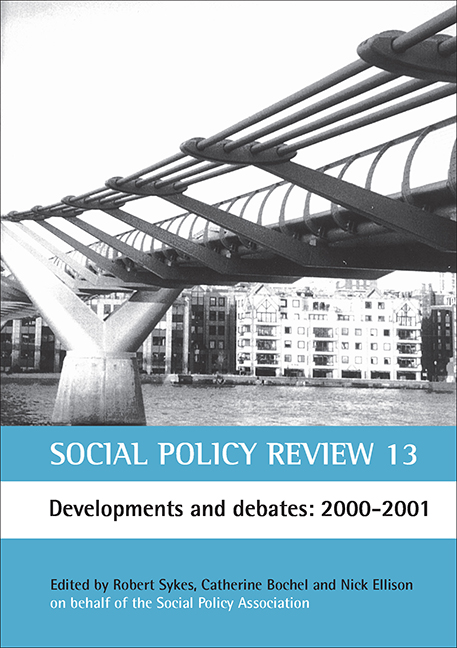five - Researching consensual ‘sadomasochism’: perspectives on power, rights and responsibilities – the case of ‘disability’
Published online by Cambridge University Press: 20 January 2022
Summary
This chapter presents and explores selected findings from a critical criminological social research project in London’s Scene of consensual sadomasochism (SM), for which I conducted unstructured, focused interviews as well as participant observations. The aim is to promote an understanding of some potentially beneficial aspects that the Scene and its practitioners offer. These are illustrated through reference to ‘disabled people’ that I frequently saw in the clubs and can be read as an incentive to alter the ways in which these human beings are dealt with within conventional societal contexts.
The data collected during my research not only provided information about the diversity of erotic experiments and bodily practices (Mauss, 1979) of consensual SM that often stand in deep contrast to the cultural imperative of genital sexuality and the day-to-day wholesale presentation of sex as a consumer product, but also revealed the central importance of responsibility and rights within consensual SM that escapes traditional understandings and interpretations of these notions.
If we were to adopt the notions of responsibility and rights from liberal rights theory, we would fail to gain insights into the ‘lived diversity’ of the empirical world of consensual SM. The liberal perspective is limited because it advocates and presumes a legal individualism that fundamentally lacks any consideration of social context (contextuality). Traditional, conventional discourse on rights and responsibilities is thus flawed because it is inherently individualistic, antisocial, competitive, decontextualised and, fundamentally tied to the notion of formal equality.
This ascription of equal rights does not only operate in terms of veiling the suffered indequalities produced and reproduced by the conditions of domination (Foucault, 1990) inherent in capitalist consumer (I could add sexist, racist, ageist, ableist, etc) society. Importantly, and this is its most destructive effect, in practice the notion of equal rights often leads people to an uncritical state of acceptance and a feeling of false security.
In contrast, the Scene of consensual SM, provides a space for a (re)signification of ‘lived bodies’ through bodily practices that are accompanied by dislocated signs and symbols. The diversity of representations (discourses and narratives) thus created can further be utilised as a tool for the ongoing explorations and experiences of ‘lived bodies’ and their changing limits. The various possibilities of transgression and/or transcendence within the context of these bodily practices in terms of societal hierarchies (for example, class, gender, race, age) also relate to alternative patterns of discourse.
- Type
- Chapter
- Information
- Social Policy Review 13Developments and Debates: 2000–2001, pp. 89 - 106Publisher: Bristol University PressPrint publication year: 2001



